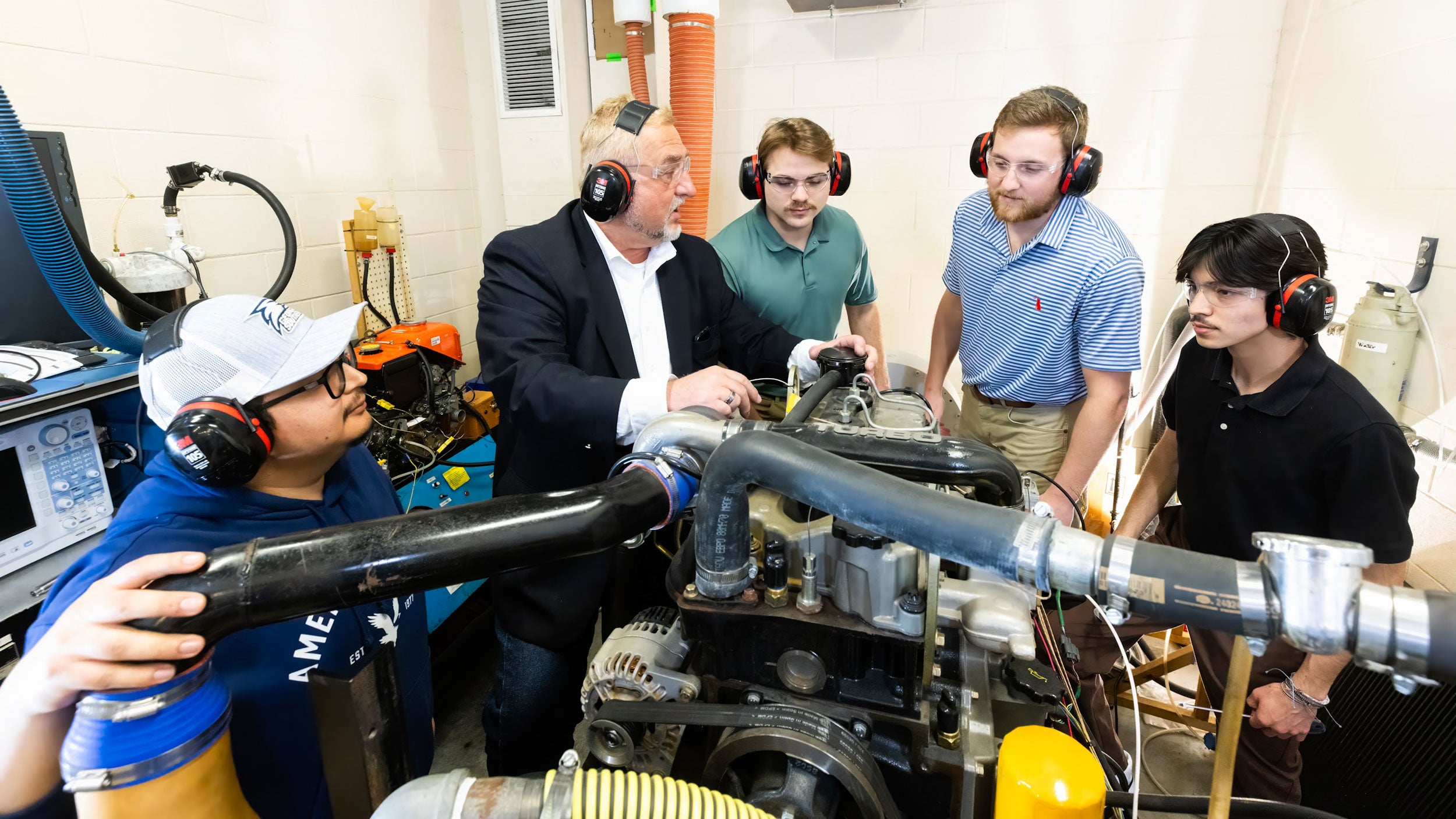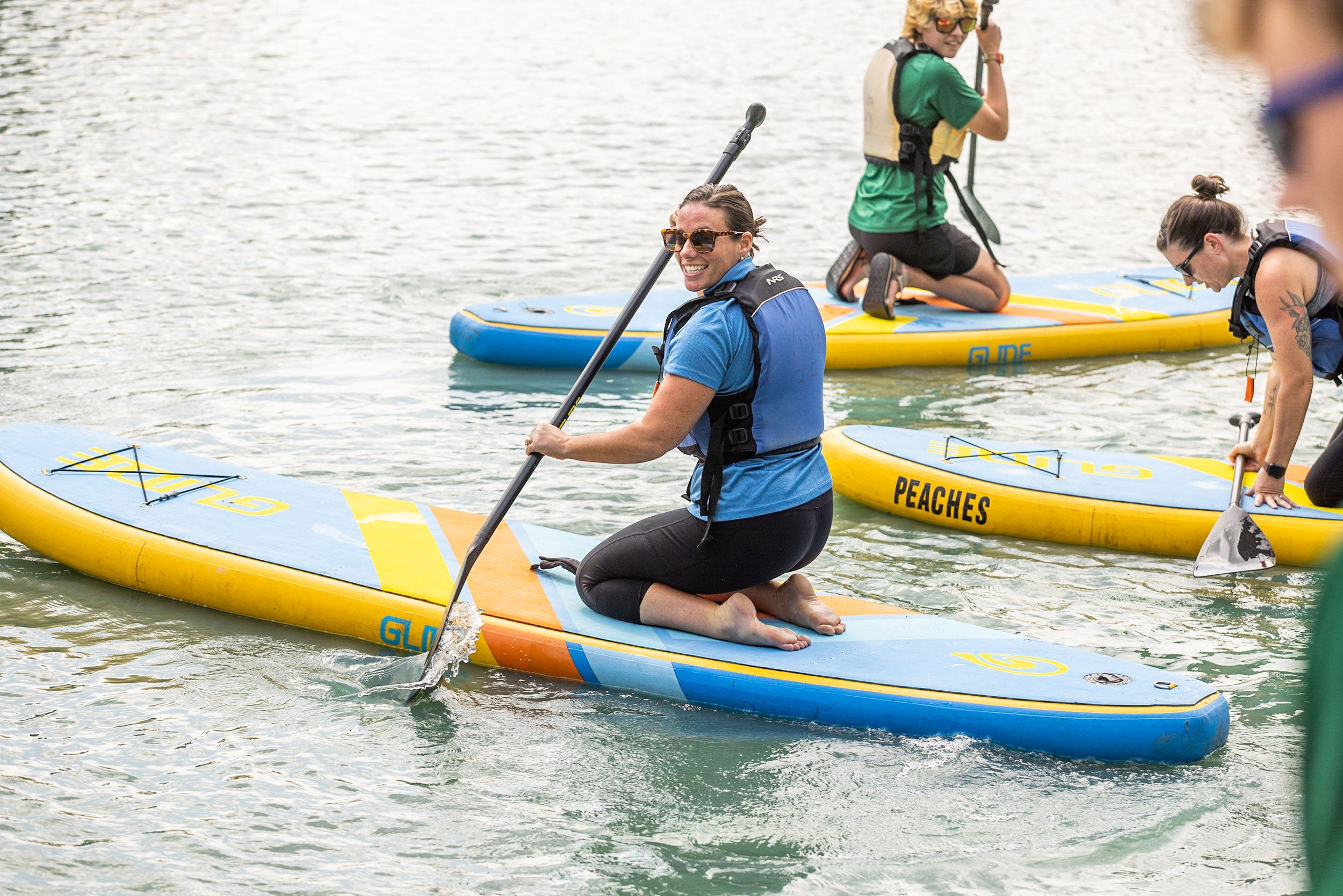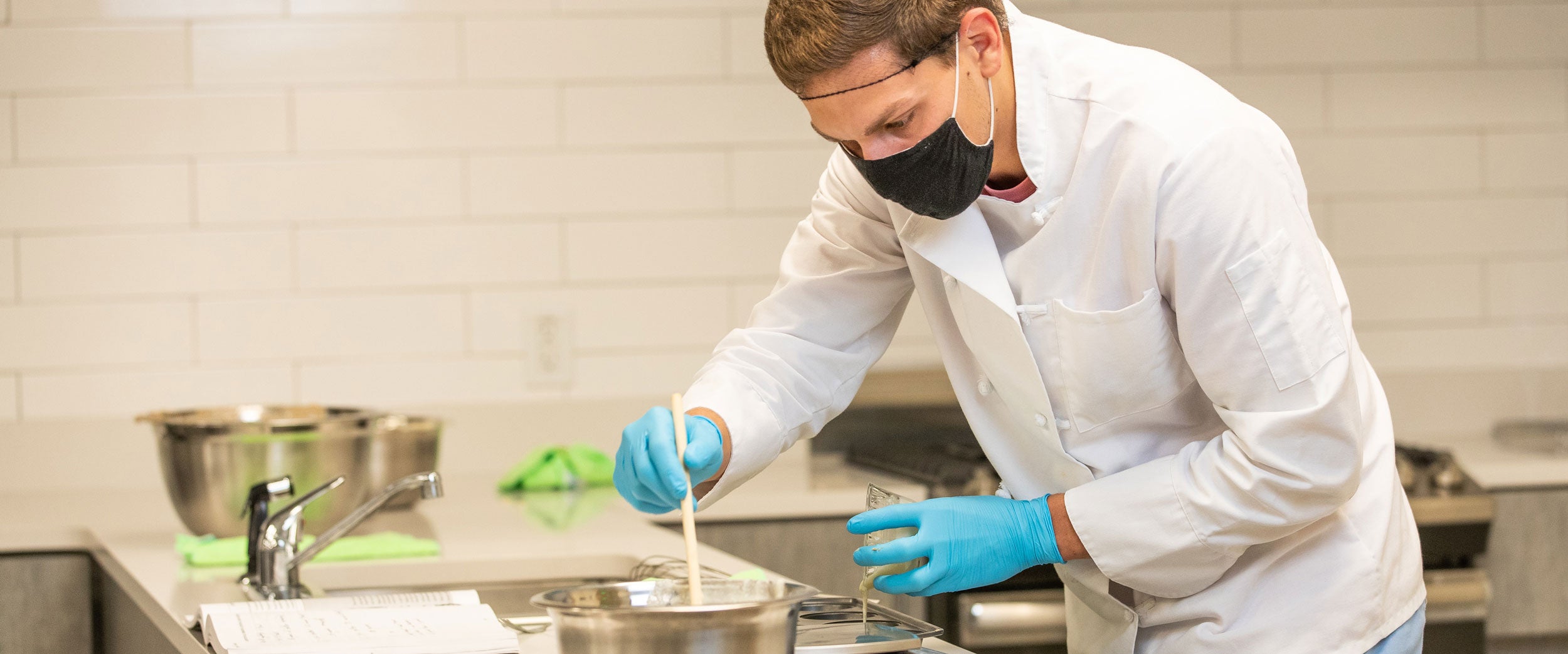Pursue Georgia’s only undergraduate sustainability science degree and find solutions to our most pressing environmental issues, including preserving biodiversity, creating biofuels, developing innovations in green chemistry, managing wildlife and more.
Locations
- Statesboro Campus (In Person)
- Armstrong Campus (In Person)
Why Major in Sustainability Science?
- Our small class sizes are perfect for our blend of classroom teaching and hands-on field experiences.
- Prepare for a rewarding career in government, nonprofit, industry or education.
- Get in-demand technical and soft skills through personalized mentoring with our world-class faculty.
- Study in natural labs that include beaches, salt marshes, rivers and more along southeast Georgia’s coastal plain.
- Pursue opportunities for undergraduate research in remote sensing, alternative energy, microbiology, wildlife management and more.
- Learn from a diverse group of faculty focused on a wide variety of sustainability issues, ranging from science and the environment to economics and society.
Our degree in sustainability science prepares students to find innovative solutions to the most pressing environmental issues of the day. Put your scientific knowledge to work stewarding our planet and exploring sustainable uses for biological resources that have the potential to positively impact our shared future.
Ready to Apply?
What Can You Do With a Degree in Sustainability Science?
Given the breadth and depth of scientific disciplines involved in sustainability science, graduates are equipped to work in a number of career fields, including geographic information systems, environmental engineering, natural resource management and more.
Jobs in sustainability science include:
- Agricultural scientist
- Air pollution analyst
- Conservation scientist or forester
- Ecologist
- Environmental consultant
- Environmental health and safety officer
- Environmental lawyer
- Environmental manager
- Environmental scientist
- Geographer
- Geologist
- Geoscientist
- Meteorologist
- Nature conservation officer
- Teacher or Professor
- Water quality scientist
What our graduates do:
What You’ll Learn
In our interdisciplinary sustainability degree program, you’ll get a wide variety of courses that touch chemistry, biology, engineering and more. Your sustainability course curriculum includes:
- Chemistry of biofuels
- Toxicology
- Fisheries biology
- Marine Pollution
- Wildlife Management
- Nature and Society
- Sustainability research methods
In addition, undergraduates have the opportunity to do research in:
- Green chemistry
- Conservation biology
- Stream ecology
- Barrier island ecohydrology
- Biofuels and alternative energy
- Marine/coastal ecology
- Environmental microbiology
- Environmental remediation
- Environmental chemistry
- Plant ecology
- Wildlife management
- Population geography
- Sea turtle natural history
- Geographic information systems (GIS) and remote sensing
Get Involved
Surround yourself with like-minded students by joining a Residential Learning Community, or by becoming a Green Ambassador—part of an organization that helps educate fellow GS students on sustainability issues.

Find Your Way
Have questions? Get academic guidance from the COSM Advisement Center or the Academic Success Center.
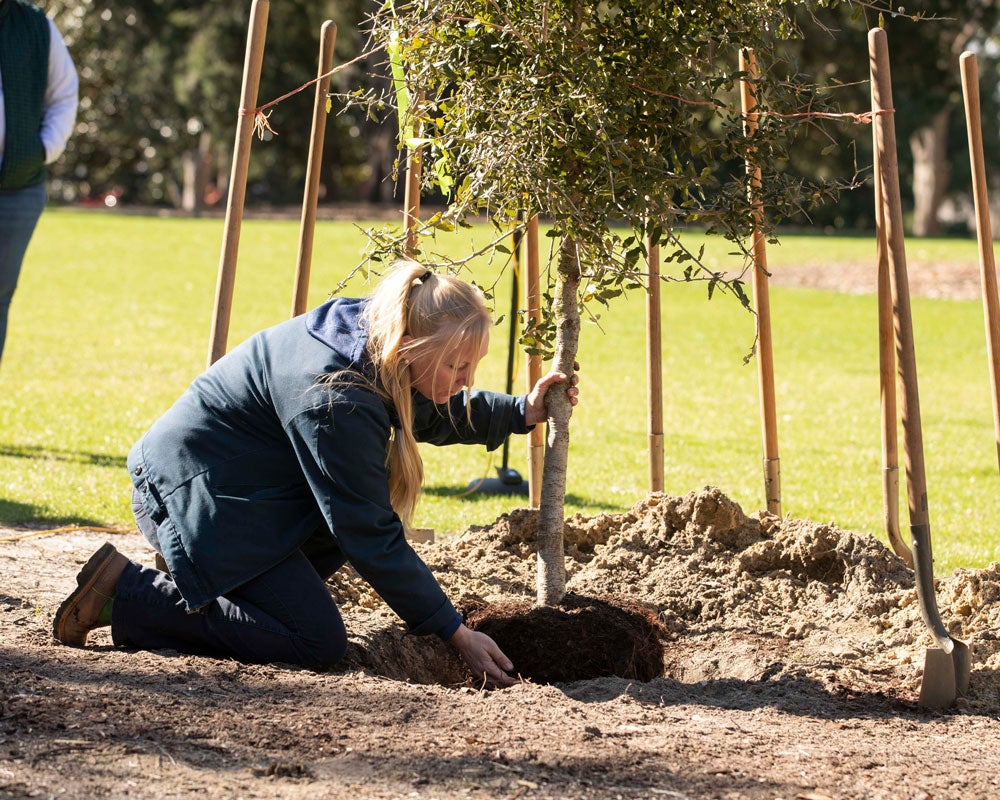
Practice Sustainability on Campus
Our Campus Community Garden is a great place to learn about and practice sustainability on the Georgia Southern campus.
Take Action
Follow these steps to complete the Georgia Southern application:
- Create an application account.
- Complete our online application using the PIN you received after creating your application account.
- Once complete, pay the $30 application fee or upload a valid fee waiver. Previous Georgia Southern applicants and dual-enrollment students do not need to pay the fee.
You can check your application status at My.GeorgiaSouthern.edu/admissions three days after completing your application. This page contains live information about your admission status, including a checklist of missing documents we need to make a decision.
Apply as a First-Year Student Transfer to Georgia SouthernGeorgia Southern University is accredited by the Southern Association of Colleges and Schools Commission on Colleges (SACSCOC) to award associates, baccalaureate, masters, educational specialists and doctorate degrees.
Become an Eagle for Sustainability and train to be a leader in sustainability issues, with one-on-one mentoring, workshops, field trips and community engagement.
The Sustainable Aquaponics Research Center (SARC) is a joint venture established in 2016 by Georgia Southern University and the FORAM Foundation. Our aquaponics system is located in a 4,100 square foot greenhouse that supports student and faculty research in areas of biology, chemistry, economics and engineering.
Student Sustainability Projects were established in Spring 2014 to improve environmental sustainability across campus with Sustainability Fee funds. Project proposals, ranging from $1,000 – $100,000, can address any aspect of sustainability in the areas of water, energy, waste, biodiversity, food, transportation, and sustainability promotion. Sustainability Projects are proposed and conducted by any student, faculty, or staff member at Georgia Southern.
Accelerated bachelor’s to master’s (ABM) pathways allow you to begin master’s studies in your senior year so you can accelerate completion of a master’s degree.
ABM pathways are perfect if you’re interested in proceeding directly from bachelor’s to master’s studies. They allow you to reduce the time it takes to get your master’s degree, giving you a head start on your career. And since any master’s courses taken as an undergraduate are billed at the undergraduate tuition rate, you’ll save money too.
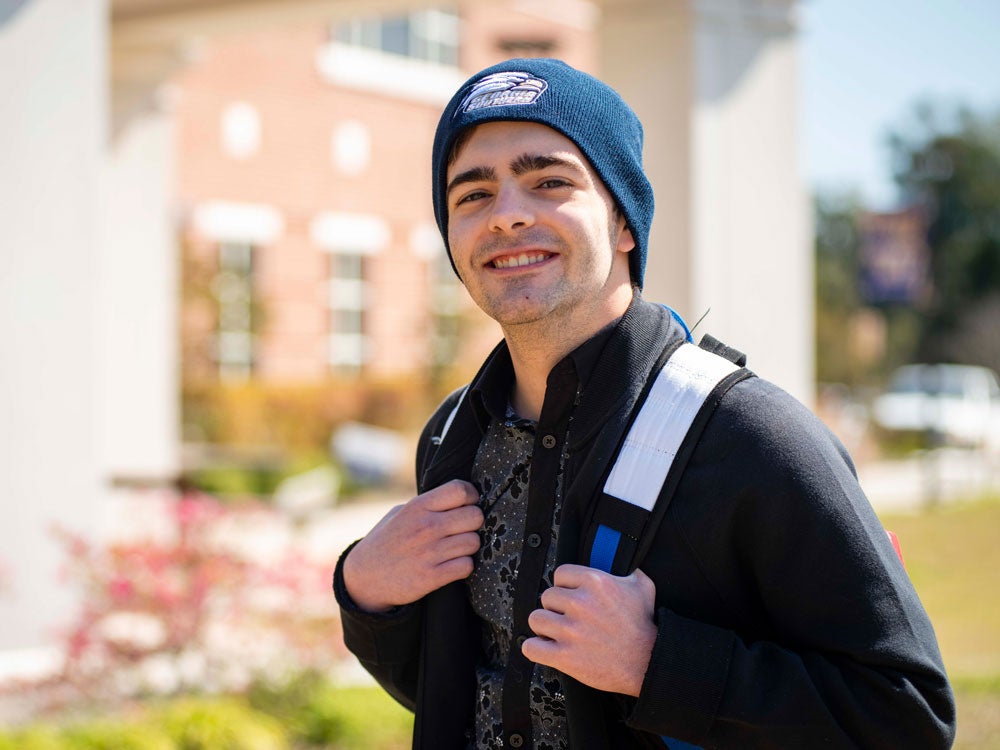
Take the Next Step
Put scientific knowledge into practice and make a positive impact on our shared future.
Contact Us
School of Earth, Environment and Sustainability
P.O. Box 8149
Statesboro, GA 30460
912-478-5361
sees@georgiasouthern.edu
Program Director
Daniel F. Gleason
Director and Professor of Biology
Email: dgleason@georgiasouthern.edu
Phone: 912-478-5178

